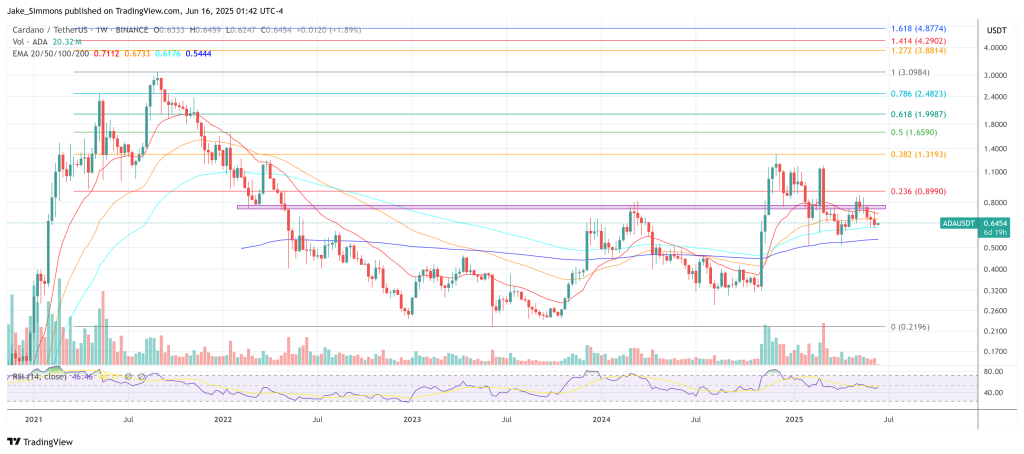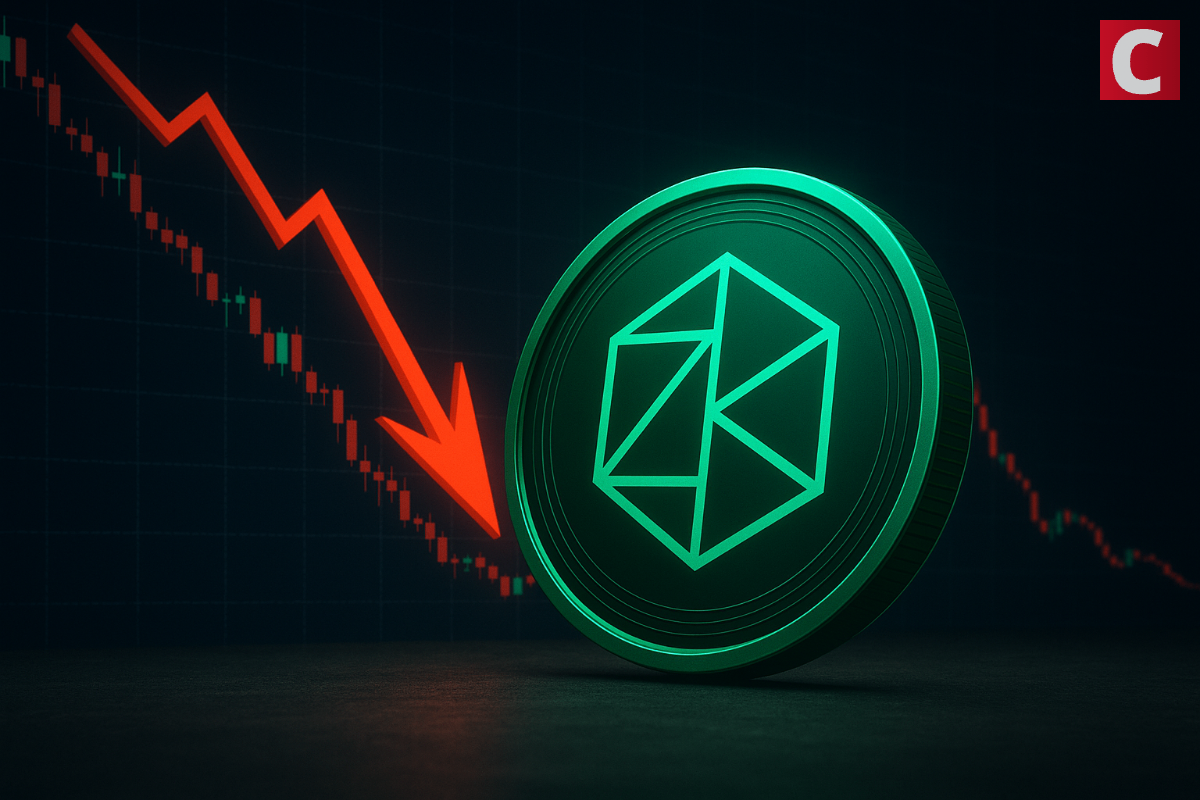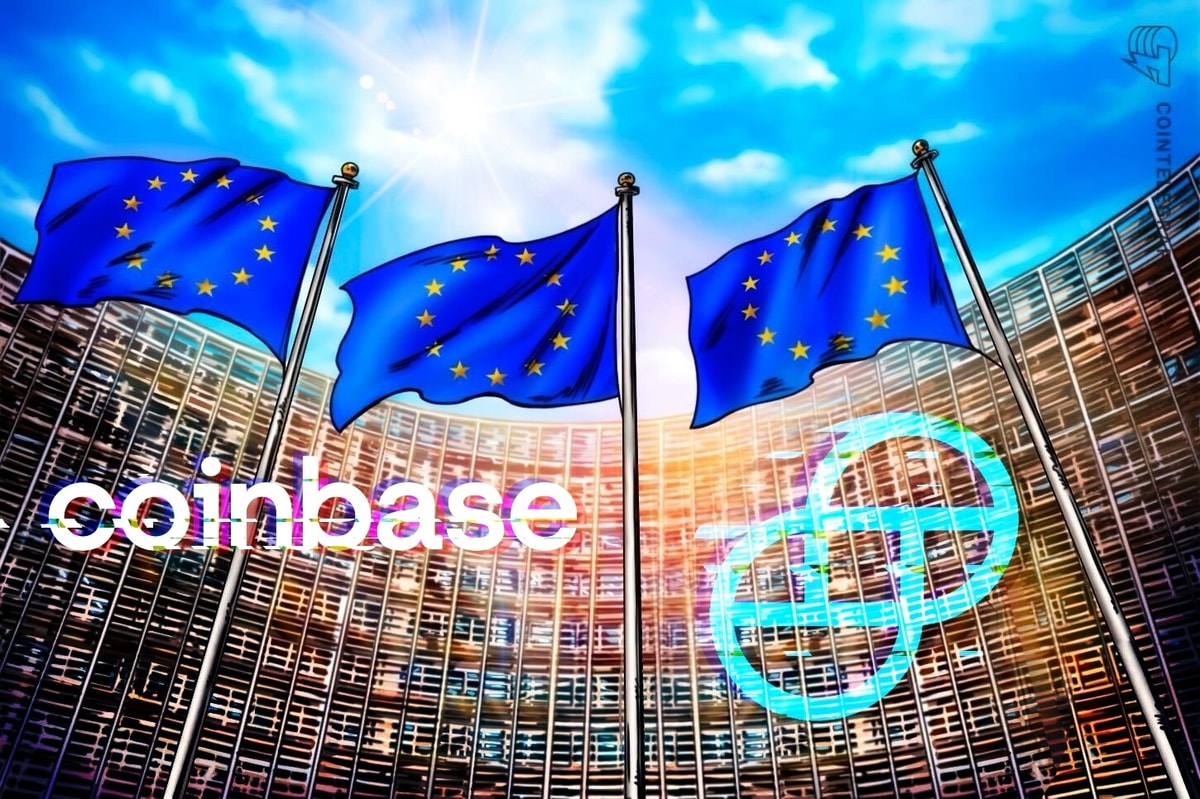
content, reviewed by leading industry experts and seasoned editors. Ad Disclosure
In an AMA on June 15, Charles Hoskinson declared Argentina the single most promising frontier for Cardano’s expansion, citing a confluence of political reform, crypto-driven economic liberalization, and Cardano’s entrenched presence on the ground. The IOG founder positioned Argentina as the platform’s next major strategic play after years of foundational work across Africa—arguing that the stakes, scale, and timing in Latin America now far exceed those of past initiatives.
Argentina Is Cardano Territory Now
“Argentina is likely going to be the first country of the modern era to have private money over central banks,” Hoskinson stated, contrasting it directly with other so-called crypto nations. “That’ll all be cryptocurrencies for private money,” he added, noting that nearly $100 billion of Argentina’s $700 billion GDP is now in crypto.
He credited much of this transformation to President Javier Milei, whom he praised in strikingly idealistic terms: “Our good friend down in Argentina, Milei, did not let the people down. He did quite the opposite. He actually got it done […] He opened his economy up.” Hoskinson went so far as to call Milei “the prince that’s promised”—a notable departure from his far more critical remarks on other national leaders like El Salvador’s Nayib Bukele, whom he described as “authoritarian” and “opaque.”
The contrast between the two couldn’t be sharper. While El Salvador received widespread media coverage for making Bitcoin legal tender, Hoskinson dismissed its relevance: “Let me get this straight—a dictator who stayed in office longer than the Constitution permitted […] who arrests any of his political opponents […] that’s Bitcoin Land?” He added, “Where’s the blockchain transparency? Where are the audits? Is that real Bitcoin or ‘Chivo’ Bitcoin?”
By contrast, Argentina’s pivot is, in his eyes, structurally aligned with Cardano’s ethos. He emphasized that Milei doesn’t just tolerate crypto; he actively disintermediates central banks, encouraging a system where “you don’t need to pass a law—just do it.”
Cardano, Hoskinson argued, already holds a strategic first-mover advantage in the region. “We had the largest office of any cryptocurrency in the top 10 in Buenos Aires,” he said. “A 100-person office that we set up in the old Google office. All politicians came and said, ‘Wow, these guys are serious.’” That reputation, he asserted, gives Cardano not only credibility but leverage in shaping the blockchain infrastructure across Latin America.
While Hoskinson acknowledged past challenges in Africa—particularly the derailment of Ethiopia’s blockchain ambitions due to political instability—he maintained that IOG and Cardano have learned from those early setbacks. “Africa still is in the portfolio,” he confirmed. “But we’re a lot wiser now.” The new strategy emphasizes microcredit, payments, and sustainable, bottom-up fintech rather than fragile government partnerships.
Returning to Argentina, Hoskinson pointed out that the political conditions now enable real adoption at scale, with infrastructure and education already underway. He left no doubt about Cardano’s readiness: “We’re not going to lose this. We’re going to move quickly.”
At press time, ADA traded at $0.645.
 ADA still hovers below key resistance, 1-week chart | Source: ADAUSDT on TradingView.com
ADA still hovers below key resistance, 1-week chart | Source: ADAUSDT on TradingView.comFeatured image from YouTube, chart from TradingView.com

Editorial Process for bitcoinist is centered on delivering thoroughly researched, accurate, and unbiased content. We uphold strict sourcing standards, and each page undergoes diligent review by our team of top technology experts and seasoned editors. This process ensures the integrity, relevance, and value of our content for our readers.

















 English (US) ·
English (US) ·